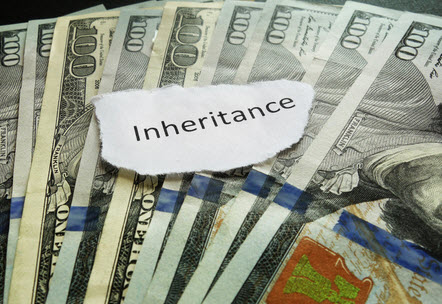
When a Loved One Dies: What You Need to Know About Probate And Estate Administration
After a person dies, there are certain legal matters that must be handled to ensure that inheritances are appropriately handed down, taxes and debts are paid, and that critical financial details are solidified. If the person died without a will, Maryland law requires, and Maryland trust attorneys recommend, that the probate be open to addressing the assets.
If there is a will or trust, there are certain legal requirements that must be addressed. If you are the executor of the estate, you will greatly benefit from the guidance of an experienced probate and estate administration attorney to ensure these matters are handled quickly and effectively.
Learn what to do when a loved one dies with this free guide or learn more about probate and estate administration below.
Estate Administration
Upon death, an individual’s assets all become part of their estate. Before assets can be passed down to the appropriate beneficiaries, they must first pass through probate, particularly if they were not part of a trust. These assets may include, though are not limited to, the following:
- Bank accounts;
- Retirement accounts;
- 401(k) accounts;
- Pensions;
- Real property;
- Personal property;
- Stocks and bonds;
- Mutual funds;
- Business assets; and
- Debt or loans.
Probate Administration
During probate, the executor of the will pays off debts and taxes, pays for funeral and burial expenses, locates assets, carries out the decedent’s last wishes according to their last will and testament, and distributes property to beneficiaries. Executors often face many challenges, particularly if the estate is large or there are debts to pay off. If the will is challenged by a disgruntled beneficiary, family member, or debtor, these matters will have to be dealt with accordingly. This is where a trusted estate attorney can be invaluable.
Who Becomes Executor to The Estate?
The first step in probate and estate administration is appointing a personal representative. This person is usually named in the will. However, if they are not named in the will, the court will appoint or designate an individual. The standard order of succession is as follows:
- Surviving spouse and children if no will exists, or surviving spouse if a will does exist;
- The person who is granted the remainder of the estate in the will;
- Children, who are entitled to a share of the estate, if a will does exist;
- Grandchildren, who are entitled to a share of the estate, if a will does exist
- Other relatives; and
- The decedent’s largest creditor or other parties named in the will.
A Trust Avoids Probate, But the Trustee Must Still Administer the Estate Through Trust Administration
There are many benefits to having a trust. Assets left in a revocable living trust do not go through probate. However, the trustee is still obligated to carry out specific duties, such as locating assets, paying debts, and more. While the process of probate can be avoided, that does not mean that the trustee has an easy job to fulfill. First of all, under §14.5–801, trustees have a fiduciary duty—an obligation to act in the best interest of the trust. Violating this duty, either intentionally or through negligence, is grounds for serious legal consequences.
A Maryland Probate and Estate Administrator is Available to Help
Probate and estate administration can be a complex and time-consuming process, a duty that should not be taken lightly. Many executors and trustees find their duties more difficult than originally imagined, particularly during the weeks and months after their loved one’s passing when, ideally, they should be managing their own grief, not delving into unknown legal depths. The Maryland probate attorneys at Frame & Frame have been assisting members of our local community for over 70 years with these processes. Contact Frame & Frame today if you need help with wills and trusts or probate administration services. Learn more about probate in Maryland by downloading the Free Guide to Probate in Maryland.
https://frameandframe.com/coping-with-the-death-of-a-loved-one/
